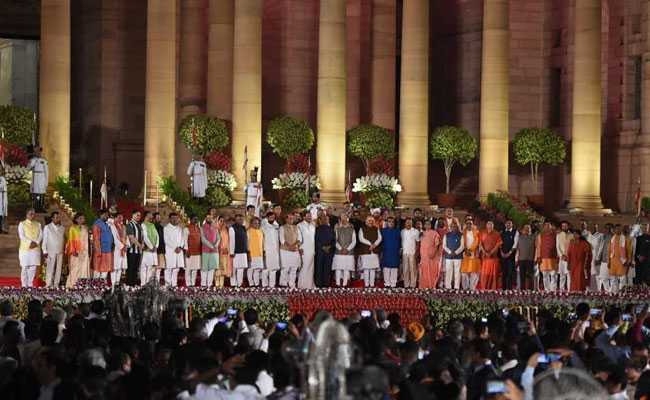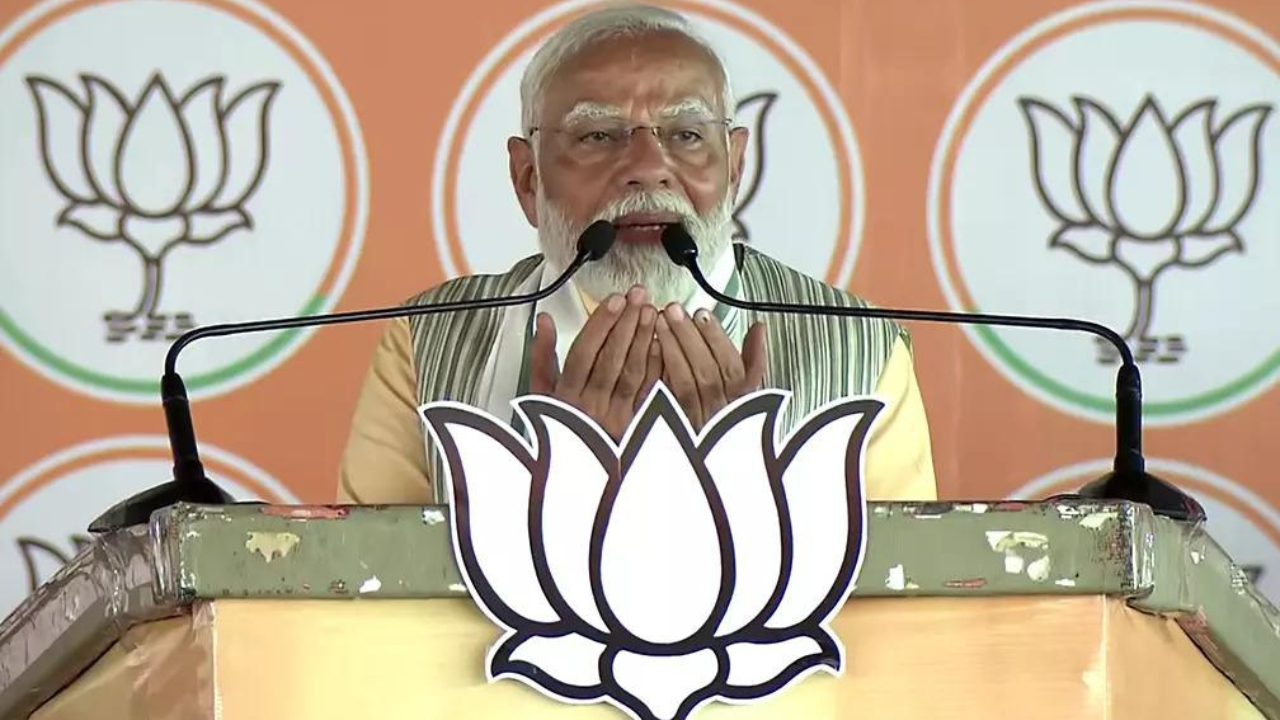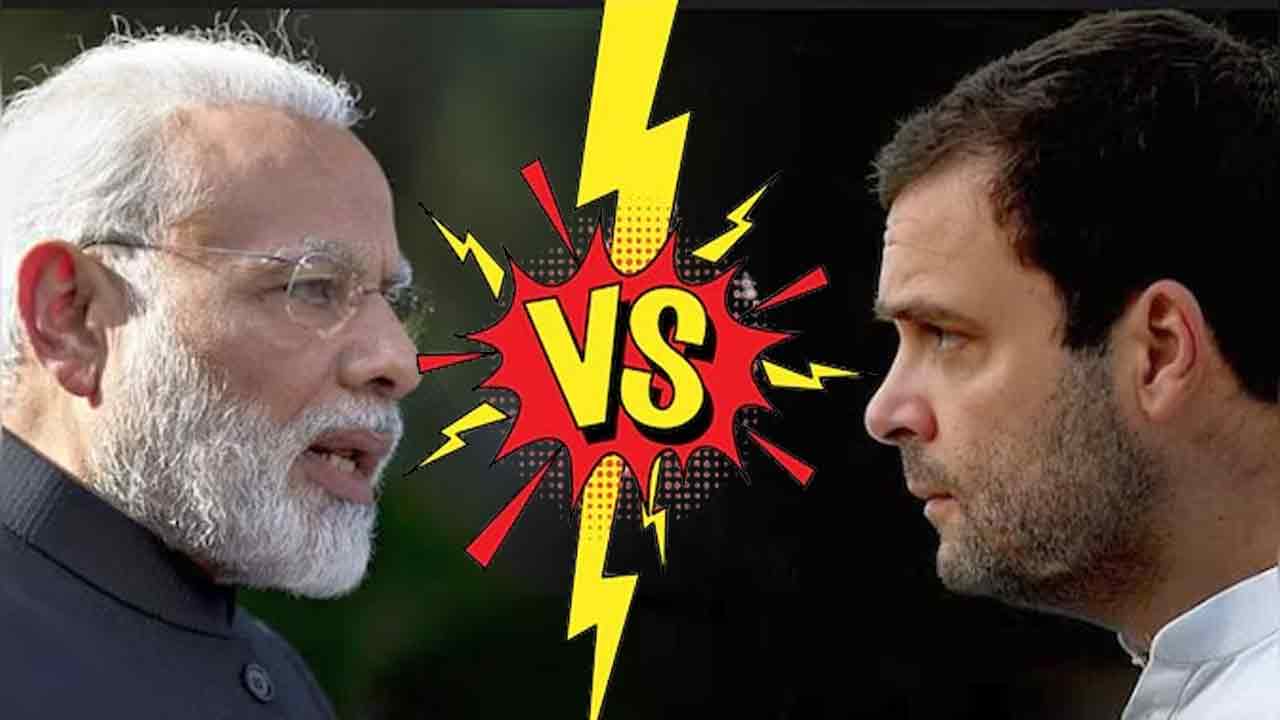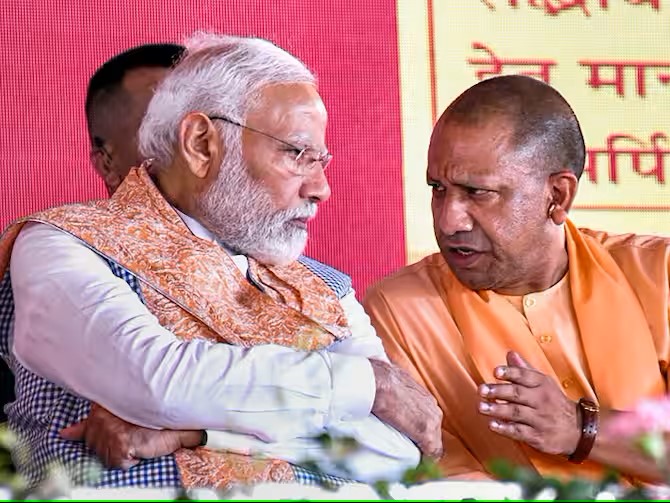Today, Prime Minister Narendra Modi, along with 72 ministers, took the oath of office, officially forming the new coalition government. This cabinet consists of 30 Cabinet Ministers, five with independent charge, and 36 Ministers of State, with portfolio announcements pending.
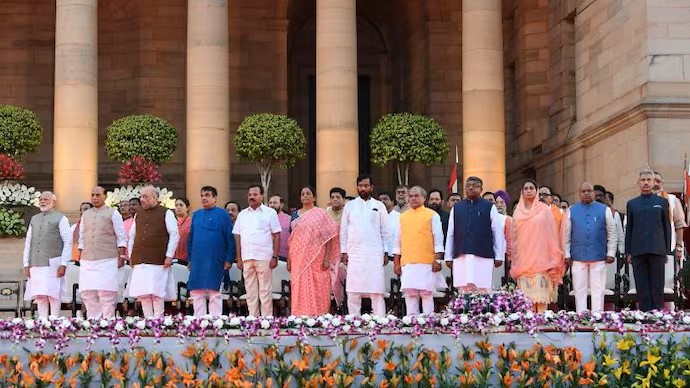 Entering his third term, referred to as Modi 3.0, PM Modi, 73, is leading a coalition government for the first time since his landslide victory in 2014. This achievement makes him the second Prime Minister, after Jawaharlal Nehru, to be elected for three consecutive terms.
Entering his third term, referred to as Modi 3.0, PM Modi, 73, is leading a coalition government for the first time since his landslide victory in 2014. This achievement makes him the second Prime Minister, after Jawaharlal Nehru, to be elected for three consecutive terms.
The oath-taking ceremony was held on the lawns of Rashtrapati Bhavan, under a forecasted temperature of 42 degrees Celsius in New Delhi. President Droupadi Murmu administered the oaths, starting with PM Modi, followed by prominent leaders like Rajnath Singh, Amit Shah, and Nitin Gadkari. Other key figures such as JP Nadda, Shivraj Singh Chouhan, Nirmala Sitharaman, S Jaishankar, and Manohar Lal Khattar also took the oath.
Representing the NDA allies, HD Kumaraswamy of the Janata Dal (Secular) and Lalan Singh of the Janata Dal (United) were sworn in. Leaders from the northeast, Sarbananda Sonowal and Kiren Rijiju, were among the first to take the oath.
Virendra Kumar, an influential Scheduled Castes leader and eight-time MP from Madhya Pradesh’s Tikamgarh reserved seat, joined the cabinet. Supporters enthusiastically cheered as each leader approached the stage to be sworn in by the President.
Jyotiraditya Scindia’s inclusion underscores his growing importance within the BJP since his departure from the Congress four years ago. Hardeep Singh Puri, recognized for his expertise in managing oil crises, also took his oath as a minister.
Chirag Paswan, leader of the Lok Janshakti Party (Ram Vilas), was inducted into the cabinet, affirming his role as his father Ram Vilas Paswan’s political successor and marking his significant return to Bihar’s political scene.

